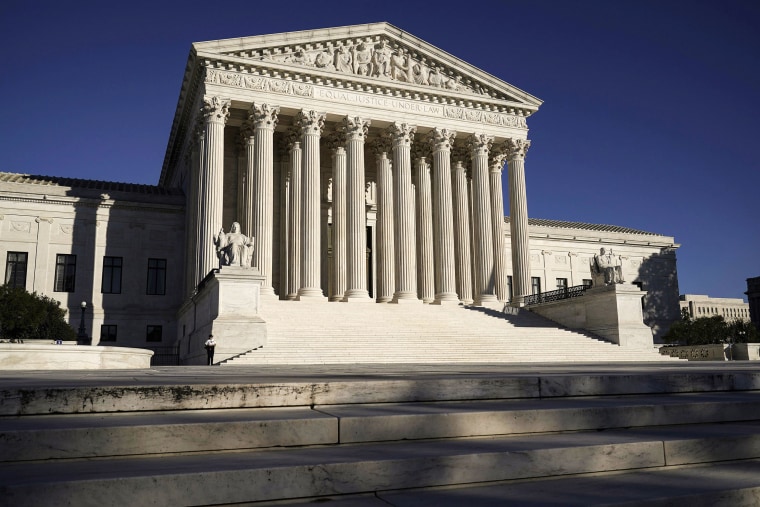Throughout the Trump era, the Justice Department became a fierce opponent of the Affordable Care Act, urging multiple federal courts to destroy the health care reform law in its entirety. This remained true as a pending case reached the U.S. Supreme Court: it fell to several states to do what then-Attorney General Bill Barr's DOJ would not do: defend "Obamacare" on the merits.
As NBC News reported yesterday, as the Biden era gets underway in earnest, the Justice Department is now free to defend, not attack, existing federal law.
The Justice Department notified the Supreme Court on Wednesday that it no longer supports the effort by Texas and other red states to declare the Affordable Care Act unconstitutional. [...] That puts the government on the same side as California and several blue states that are defending the law.
The full text of yesterday's court filing in California v. Texas has been posted online at the Supreme Court's website.
Note, this does not end the pending litigation. The case was brought by Republican state attorneys general, and it was then endorsed by the Trump administration. Yesterday was the Justice Department's way of letting the justices know that it now believes Barr & Co. got the case wrong and it "no longer adheres" to the Republican administration's position.
In case anyone needs a refresher, how we arrived at this point is a bit of a mess. As regular readers may recall, when Republicans approved massive tax breaks for the wealthy in 2017, they threw in an unrelated provision: the ACA's individual mandate, which the Supreme Court had already endorsed as part of Congress' taxing power, would now be lowered to zero.
That, in turn, gave some GOP lawyers an idea. If the Supreme Court had ruled that the ACA is permissible because of this tax, and the tax has effectively been eliminated, then "Obamacare" is no longer permissible. In effect, the provision of the reform law can't be a tax if it's zero, and if it's not a tax, it's an impermissible directive being imposed on Americans (even if the command has no teeth, because there are no adverse consequences for ignoring it). Ergo, the argument goes, the mandate is unconstitutional.
And, Republicans went on to argue, if the mandate is unconstitutional, and the policy is intertwined with the rest of the Affordable Care Act, then the only sensible thing to do would be to bring down the entire existing health care system and strip tens of millions of American families of their benefits and protections.
A group of 18 "red" states, led by Texas, filed the case, pressing the judiciary to do what Donald Trump and GOP lawmakers could not: repeal "Obamacare."
The week before Christmas in 2018, U.S. District Judge Reed O'Connor -- a Bush-appointed jurist in Texas -- found all of this persuasive, and agreed to strike down the entirety of the ACA, root and branch. Even many conservatives and ACA critics agreed that the ruling was indefensible, with reactions that included words and phrases such as "pretty bananas," "embarrassingly bad," and "absurd."
Once the Supreme Court agreed to take up Texas v. California, the original assumption was that there was simply no way the justices would take this seriously. But after Ruth Bader Ginsburg's passing, and with one-third of the high court made up of Trump's handpicked justices, anxiety among health care advocates reached new heights.
Oral arguments in November eased those fears a bit, as justices seemed quite skeptical of Republicans' arguments. It's against this backdrop that the Justice Department told those same justices yesterday that it disagrees with those arguments, too.
A final ruling is expected sometime between now and June. It'll be the third time the high court has ruled on the ACA's constitutionality.
